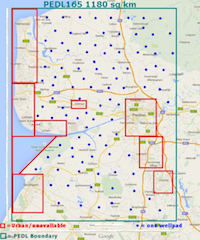What? No yurts!
[A guest blog post from Gary Liggett]
When Margaret Thatcher’s former press secretary, Sir Bernard Ingham branded people who are concerned about fracking: “blinkered totalitarians, who want us live in yurts and wigwams”, I was somewhat taken aback. [Ref: http://www.dailymail.co.uk/news/article-2399955/Fracking-protestors-blinkered-totalitarians-want-live-yurts-wigwams-says-Thatchers-press-secretary.html] My immediate reaction was: this description doesn’t fit the many hundreds of people I have met, listened and talked to. Amongst their ranks are businessmen, estate agents – who are too scared to speak out, and many ordinary men, women and young people. Top of the list of their concerns are such things as the safety of the water supply, house prices, noise and pollution from fracking rigs, high volumes of heavy traffic, damage to wildlife and the beautiful countryside on the Fylde Coast. In short, the whole concept of bringing large scale oil and gas exploration within close proximity of local communities and peoples’ homes.
So it was with great interest that I attended the launch of Greenpeace’s campaign in Lancashire, on the Flag Market in Preston. Sir Bernard might be surprised to learn that I didn’t see any lentil-eating, sandal-wearing totalitarians. What I did see were large numbers of ordinary members of the public expressing their concerns and signing up to the campaign: Wrongmove – Lancashire is not for Shale.

The campaign is aimed at targeting local and country councillors, through the democratic process, to wake them up to the fact that beyond their own party lines, there are huge droves of people – ordinary voters, like you and me – who are deeply concerned about the prospect of Lancashire being turned into alarge gas field. This is no exaggeration, because the operating company, Cuadrilla Resources, have plans for around 100 well-pads, each of which would support in the order of 40 wells each. Of course, the backdrop to all of this is the indisputable fact that of the two ‘fracks’ conducted at Cuadrilla’s well at Preese Hall, both resulted in earthquakes and structural damage to peoples’ homes. Indeed, I discussed this very topic with a representative from Cuadrilla, at their recent public meeting in Freckleton. They were in no mood to deny this. One the contrary, they said they had paid compensation on properties they decided warranted it.
It is in that very area of concern that Greenpeace has decided to centre their initial campaign. These are some of the points from their literature:
Experts say that UK shale gas would not reduce your energy bills. Even the company that wants to frack in Lancashire has admitted that the impact would be “basically insignificant.” Meanwhile, shale gas extraction has been linked to reduced house prices.
In respect of the environment, they say steady streams of trucks laden with chemicals, fracking fluids and waste liquids would be travelling to and from drilling sites. In the US, Duke University found that homes within 1km of a fracking site were up to 23 times more likely to have contaminated water.
On the economy they say Cuadrilla is deliberately exaggerating the number of jobs fracking would create. Meanwhile, 88,861 people in the North West are already employed in local green industries. Fracking threatens to undermine this rapidly growing sector.
What can be done about this? You can tell your local councillors that you want to say no to fracking by visiting www.wrongmove.org entering your postcode and sending them an important message that you do not want the UK to become a fracking site.





























